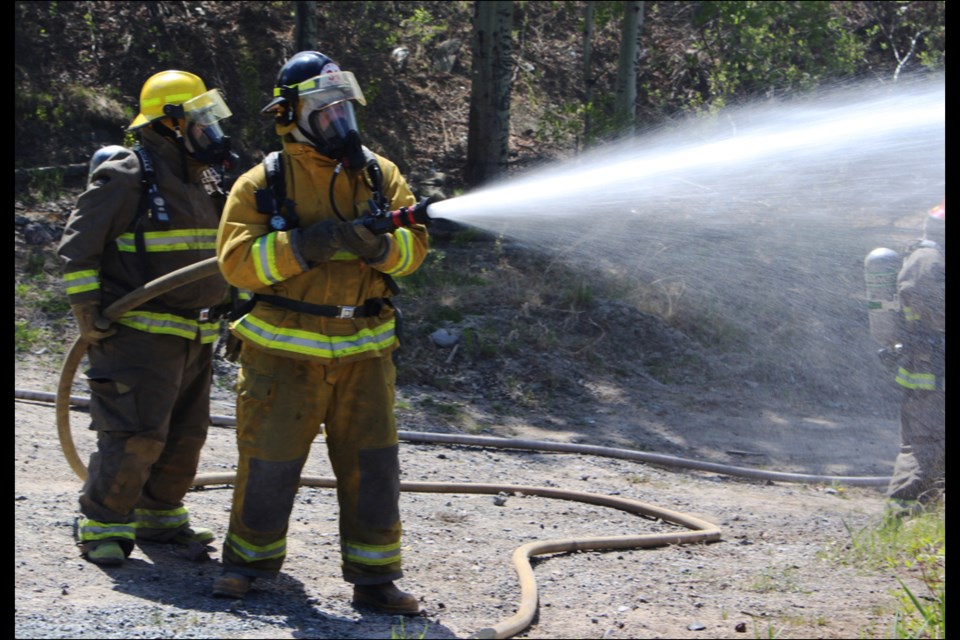A Flin Flon-based training program for remote, northern firefighters is wrapping up its first year of sessions.
Four firefighters from Moose Lake were the trainees for the last session for the Northern Lights Fire Academy this year, taking part in specialized training in the Flin Flon area until May 31. A total of 14 communities are covered by the academy, but only six communities – Brochet, Cormorant, Moose Lake, Pelican Rapids, Pikwitonei and Thicket Portage – were able to send fire personnel.
While some of the communities are small and isolated, the firefighters are called often.
“With the Moose Lake firefighters that are here this week, during their first two days while they were doing first aid, they missed 17 fire calls back home. It’s quite busy,” said Chad Cooper, Flin Flon Fire Department chief and academy organizer. “Most of it was just grass fires started by kids, but they have pretty high demand there.”
The academy includes two days of first aid training, then discussing the structure of a fire department, how to use specialized equipment like a self-contained breathing apparatus (SCBA) and fire hoses, then the specifics of putting out small, uncontrolled fires like house and vehicle blazes.
In many northern communities, firefighters are employed seasonally by Manitoba Sustainable Development to fight forest and bush fires. Once the summer fire season ends, some stay to ward off fires in an urban environment. Cooper said the two tasks require different training and skills.
“They already have that basic knowledge of working with pumps and pulling hose. It’s more of that transition into structural firefighting and the different hazards that go along with that. The majority of them come with very good knowledge,” said Cooper.
“If they don’t have any knowledge with fire, they come with a great work ethic. They’re ready. That’s the biggest thing. If they come with work ethic, we can make them into the best firefighters they can be.”
Both the Department of Indigenous and Northern Relations and the Northern Manitoba Mining Academy were involved with promoting the academy courses, along with support from the city of Flin Flon.
In the past, Cooper said provincial authorities provided top-of-the-line equipment to several northern firefighting forces, but skimped out on providing adequate training for the new items.
“We’re trying to catch up with giving them training. Hopefully, they’re going to start flooding new equipment back over to the northern communities,” Cooper said. “Without the training, you could throw millions and millions of dollars at a fire department and it’s just not going to work.”
As for next year, Cooper said he hopes to continue teaching depending on the type of resources available.
“We’re not sure (about that) yet, but we’re kind of sitting down and going through what worked and what didn’t work and what’s going to move forward,” he said.
“The program’s been awesome. We’re happy that our partners are happy to help our neighboring communities and improve their protective services. We’re all in it here in the north, having the best communities we can provide.
A northern-based firefighting force training northern firefighters brings a specific knowledge of terrain, tactics and customs that other programs based elsewhere may lack, Cooper said.
“We’re kind of out and by ourselves. We’ve all got to band together and help each other out. That’s an advantage over having the training up here is when they say, ‘This is our community,’ we know what it’s like. Where you talk to somebody from Winnipeg, they don’t know ‘What do you mean, you don’t have a hydrant?’” he said.




